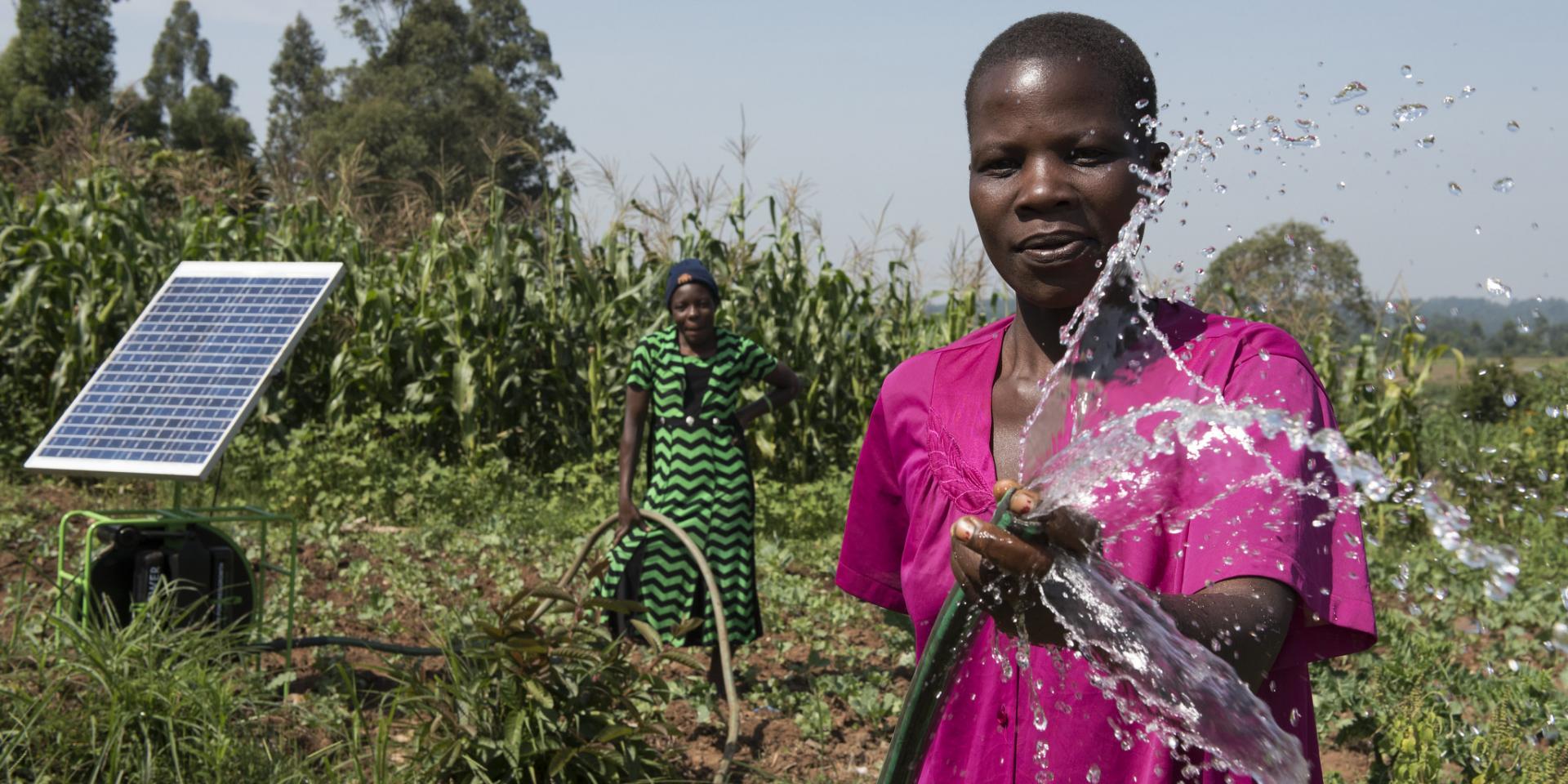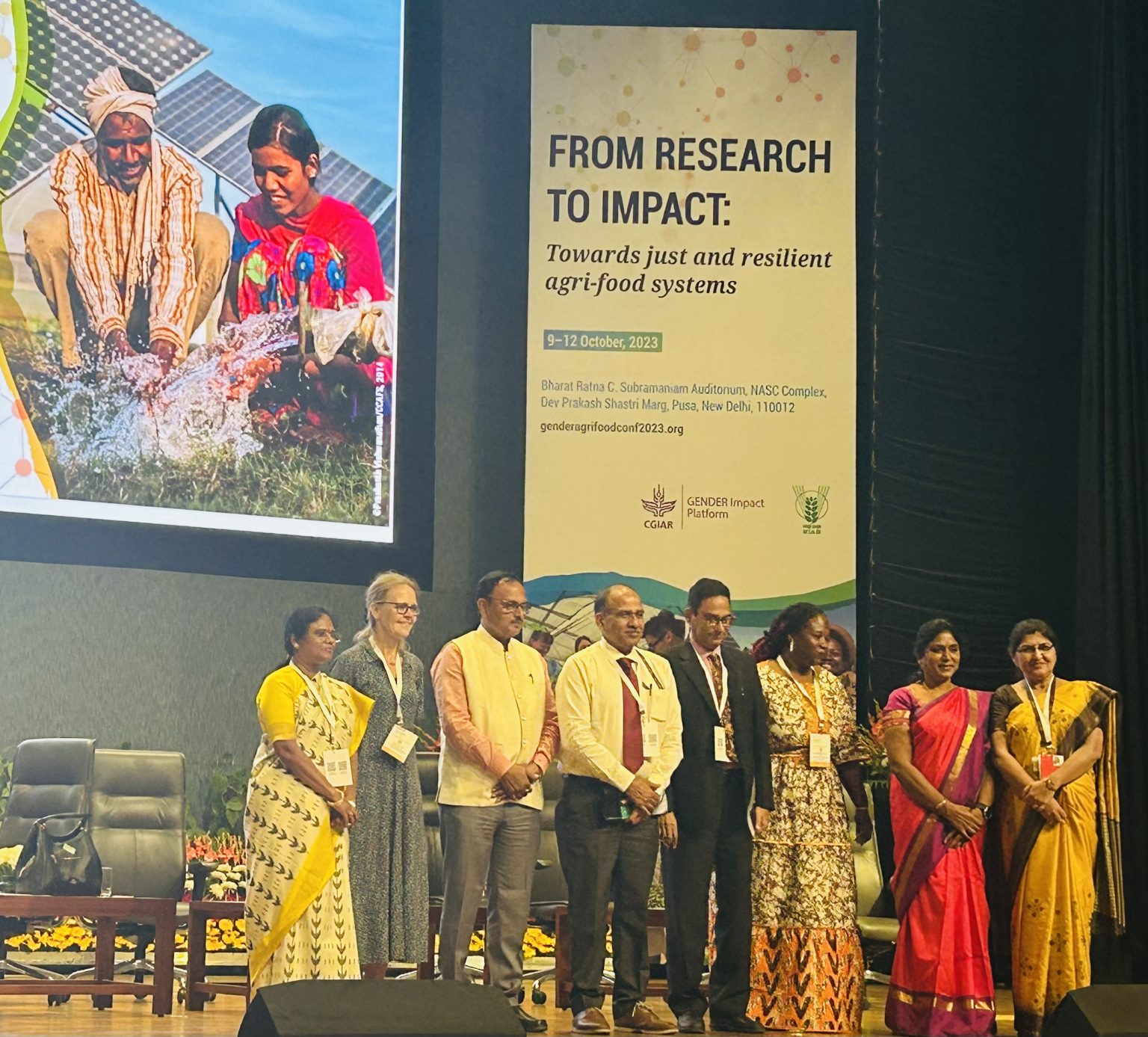Planting seeds for bringing youth into agriculture
 Jeffery M Walcott / IWMI
Jeffery M Walcott / IWMI
Academia, government and industry each have a role in attracting youth to careers in agriculture in India.
When it comes time to consider career plans, very few young people even consider agriculture as an option. Many young people believe urban areas offer more profitable jobs with less physical labor. However, agriculture in India is evolving every single day. New digital innovations and cutting-edge technologies are making farming more profitable and smarter.
To deliberate on young people’s challenges and solutions to address them, a parallel session was held during the CGIAR GENDER conference, From Research to Impact: Towards Just and Resilient Agri-food Systems, October 9–12, 2023, in New Delhi, India.
In the four-day conference, gender researchers and practitioners from 68 countries shared their perspectives, knowledge and skills about improving gender inclusion in food systems. The conference served as a platform where policymakers, practitioners and private sector actors came together to share the goal of equitable food-systems transformation. They aimed to bridge the gap between research and practice and foster gender-equal and socially inclusive, resilient food systems.
Technology and combined efforts from academia, industry and the government will continue to play critical roles in collectively attracting young people toward these new, innovative ideas in agriculture. Agricultural education can, therefore, play a profound role in shaping the future of sustainable agriculture in India.

Panelists L-R: Neerja Prabhakar, SKLTSHU, Hyderabad; Dorte Thorsen, Institute of Development Studies, University of Sussex; P.S. Pandey, RPCAU Samastipur, Bihar; R.C. Agrawal, Indian Council of Agricultural Research (ICAR); Ch. Srinivasa Rao, Director, ICAR-NAARM, Hyderabad; Laura Estelle Yeyinou Loko, Ecole Nationale Supérieure des Biosciences et Biotechnologies Appliquées (ENSBBA); Geethalakshmi Vellingiri, Vice Chancellor, Tamil Nadu Agricultural University; Seema Jaggi, Assistant Director General- HRD, ICAR.
Photo: Richa Sharma Puri/CIMMYT
How academia can enable opportunities for youth
S. Pandey, vice-chancellor of Dr. Rajendra Prasad Central Agricultural University, Bihar, shared his thoughts on addressing youth-centric issues in agriculture. He emphasized that artificial intelligence (AI) is increasingly vital because of its many applications and benefits and that it can help youth to use the power of big data and the internet.
“Use of AI can change the entire scenario: technology-driven agriculture is the need of the hour. New tools and techniques are important to address the current challenges where youth can be at center stage,” he said.
In addition, Geethalakshmi Vellingiri, vice-chancellor of Tamil Nadu Agricultural University (TNAU) said, “Agriculture is looked at as manual, hard work, and not as a lucrative job, which makes it unattractive to youth. TNAU is starting One Student One Farm Family linkage for the first-year students. In this model, students will get to know about the issues being faced by the farmers in the field. They will then link the farmer to the scientist for probable solutions, thus bridging the gap.”
Government’s role in shaping policy
“Students are unaware of the different dimensions of agriculture; hence, their inclination towards agriculture education is not much,” said R. C. Agrawal, deputy director general of the Agricultural Education Division of the Indian Council of Agricultural Research (ICAR), and moderator of the youth careers session. “ICAR is designing a new agriculture-based curriculum for primary, middle and secondary levels to attract more youth. ICAR has initiated its efforts towards integrating the agriculture world with this new education policy.”
Industry opening doors for youth in agriculture
Ch. Srinivasa Rao, director of ICAR’s National Academy of Agricultural Research Management (NAARM), Hyderabad, spoke about the importance of industry. “The youth, both men and women, should be sensitized towards the agrifood sector. Start-ups can help to attract youths’ attention. We should characterize farms as an industry, farming as a business and the farmer as a businessperson. If this orientation doesn’t occur, livelihoods cannot be improved, and youth retention in agriculture won’t be achieved.”